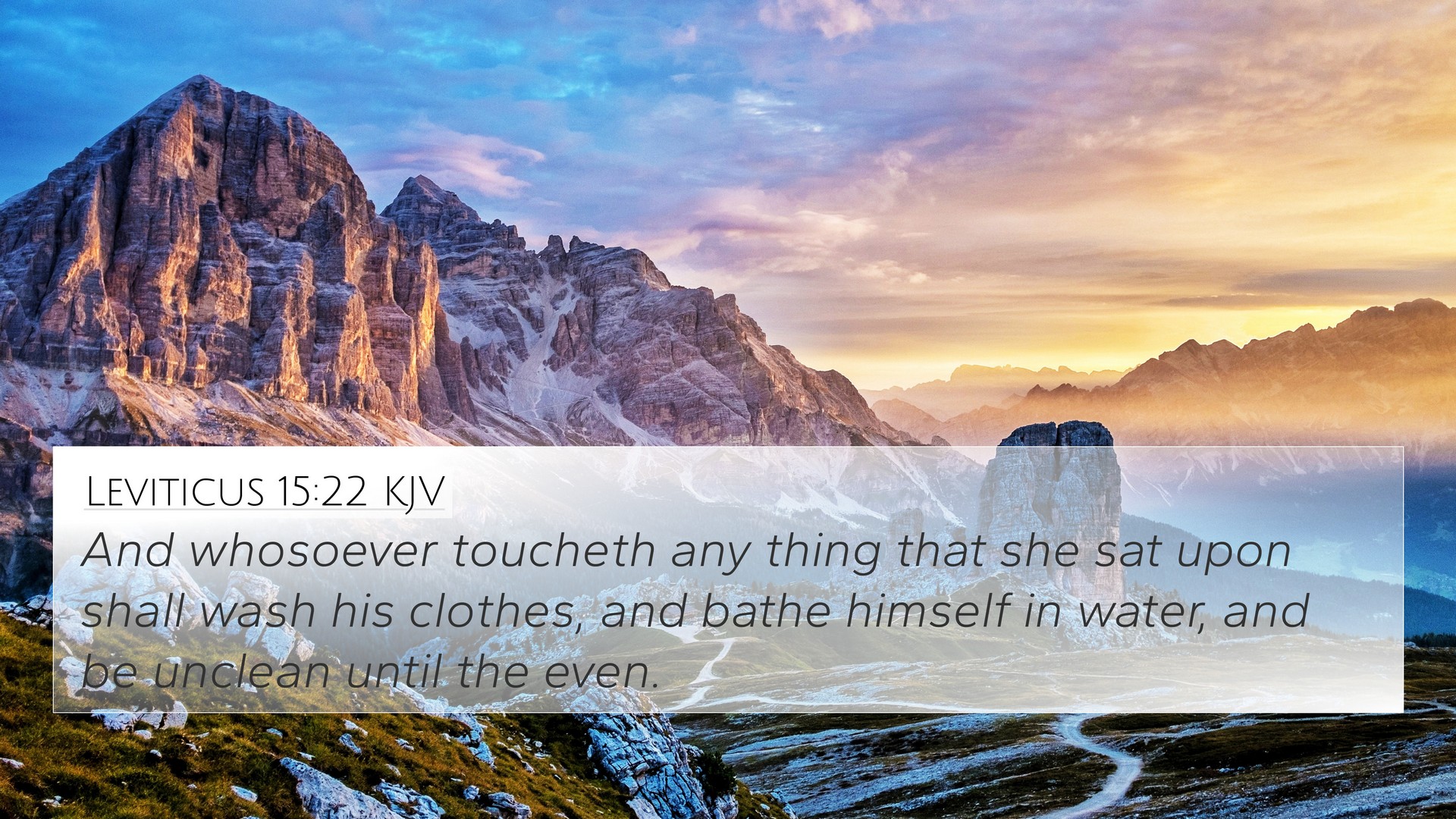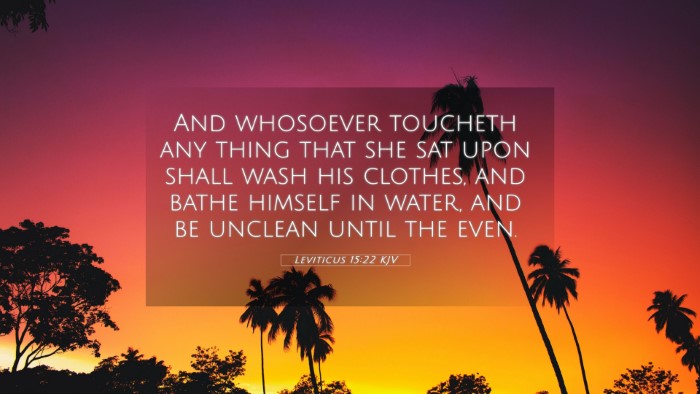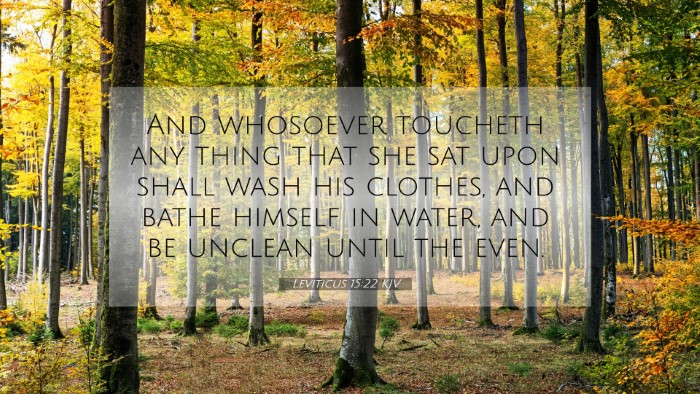Understanding Leviticus 15:22
Leviticus 15:22 states:
"And whoever touches any thing that was under him shall be unclean until the evening; and he that beareth any of those things shall wash his clothes, and bathe himself in water, and be unclean until the evening." (KJV)
Summary of Meaning
This verse deals with the laws of ritual purity, specifically concerning bodily discharges. In a broader sense, these laws reflect God's holiness and the importance of being clean in both physical and spiritual matters.
Insights from Public Domain Commentaries
-
Matthew Henry:
Henry emphasizes the seriousness of ritual cleanliness and how these laws were instituted for the Israelites to maintain a distinct identity as God's chosen people. He notes that the physical condition of being unclean symbolizes a greater spiritual reality, calling believers to consider their purity before God.
-
Albert Barnes:
Barnes connects this verse to the broader theme of cleanliness laws in Leviticus, underscoring the importance of identifying with God's holiness. He interprets the idea of being 'unclean' not merely as a physical state but as a moral and spiritual lesson, urging the people to separate themselves from anything that would render them unclean.
-
Adam Clarke:
Clarke highlights the rigorous nature of the cleanliness laws and how they serve to instruct people in holiness. He interprets the actions required when touching unclean items as a foreshadowing of the New Testament's call to self-examination and repentance.
Bible Cross-References
Leviticus 15:22 shares connections with several other verses that enhance its meaning:
- Leviticus 11:44: Calls for holiness and being clean, echoing the theme of purity.
- Hebrews 12:14: Urges believers to pursue peace and holiness, indicating a New Testament application of these principles.
- Exodus 19:10-11: Discusses the purification before encountering God, paralleling the theme of being ceremonially clean.
- 2 Corinthians 7:1: Encourages believers to cleanse themselves from all filthiness, resonating with the call to maintain purity.
- 1 Peter 1:16: Cites the command to be holy, drawing a direct line to the righteousness expected in Leviticus.
- Matthew 23:26: Jesus speaks of the need for inner purity, illustrating that the physical laws have deeper spiritual meaning.
- Mark 7:15: Discusses what truly defiles a person, connecting Old Testament laws to Jesus' teaching on inner purity.
Thematic Connections
Through Leviticus 15:22, we can identify several thematic connections regarding purity:
-
Purity and Holiness:
The Bible consistently communicates the importance of holiness, with this verse serving as a reminder of God's standards for His people.
-
Symbolism of Cleanliness:
The physical acts of washing and abstaining from certain substances symbolize the need for spiritual cleanliness and preparedness to stand in God's presence.
-
Community Standards:
The law provided a framework for communal relationships, teaching individuals how their state of purity affects the community.
-
Preparation for Worship:
These cleanliness regulations were essential preparations for approaching God, reflecting the necessary attitude of reverence.
Practical Applications
Leviticus 15:22 instructs believers to consider their lifestyles and actions that might affect their spiritual condition:
- Self-Examination: Take time to assess personal practices and their alignment with God’s holiness.
- Community Impact: Recognize how individual behaviors contribute to the collective health of the church and community.
- Spiritual Cleanliness: Engage in practices of confession and repentance, ensuring a heart ready to approach God.
- Understanding Symbolism: Recognize the physical actions in the Old Testament as teaching tools pointing towards a greater New Testament reality involving Christ's work.
Conclusion
Leviticus 15:22 serves as a critical piece in the intricate puzzle of biblical laws regarding purity. It reflects God's desire for a holy people, a theme that transcends the old covenant and finds fulfillment in Christ's transformative work. By understanding these connections, believers can engage more profoundly with Scripture, reflecting on how ancient laws relate to modern spiritual living and holiness.


